AARP Hearing Center

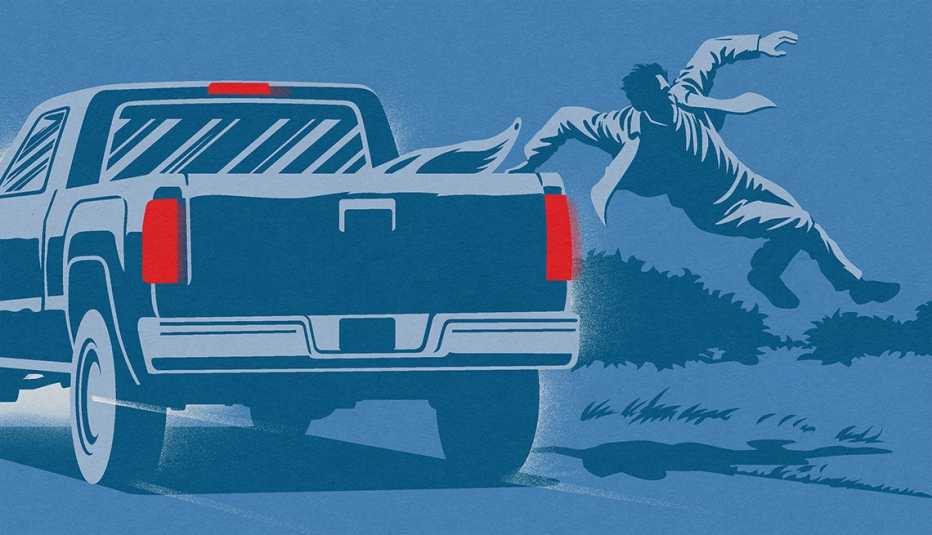
29
No Time Left on the Clock
I came awake in darkness and in the middle of a gasping, choking spasm. Water flowed from my mouth and nose, and for a panicked moment I couldn’t breathe. Coughing, I flailed my hands, coming into contact with a rough blanket that I shoved off my face, gratefully sucking in air past the sodden feeling in my chest. A cramp seized me and I brought up river water from my stomach.
I was in the back of a truck, the steel bed vibrating as the tires hummed down the pavement. Once I stopped throwing up, the shivers started: I was colder than I’d ever been; it felt as if my very bones were frozen. My head ached and I was so weak that for several minutes, I lay there expecting to die.
Alan was gone. There was a different quality to his silence, deeper than the odd absence I’d felt when he was asleep. He had died back there in the river, somehow stepping in and taking my death for me. Drowning, just as he’d always feared. I was truly alone, now. Quaking, I clutched my legs and bit back the pain of loss.
After a time I gained control—Alan’s voice came to me, almost as if he were still inside. “You’ve got to get out of here.” I cautiously looked over the edge of the tarp through the back window into the cab. In the dwindling light I could plainly see Burby and Wexler, two rifles hanging on the rack behind them.
I didn’t know where we were or where we were going, but I’d had enough and just wanted to escape. We were moving too fast for me to do anything, though, but ride helplessly down the highway.
They must have a plan for me. At some point, they would come back to check under the tarp and I would be easy prey, unable to defend myself.
Opportunity presented itself a few minutes later. With a screech of brakes that slammed me forward in the truck bed, Wexler stopped, hitting the horn. “Idiot!” he shouted at the vehicle that had sagged onto the highway in front of him, nearly causing a collision as it pulled out of a driveway.
We were rolling again in a second. I had no time. Gulping, I seized the side of the truck and vaulted over, landing heavily in the muddy ditch next to the highway. I held my breath, watching Wexler’s brake lights, but nothing happened.
I took my bearings and realized Wexler’s truck was headed toward Kalkaska. I was standing only a couple of miles outside of city limits. I ran in that direction, my legs rubbery and useless. Every inhalation seemed to bubble in my chest, and the first mile I coughed more than I breathed, bringing up lungfuls of phlegmy water. Gradually, though, I straightened myself out. My feet were completely numb, hard to keep on track, but after a while a thousand needles stabbed them, and my shivering stopped. My breath sent out billowing clouds of fog.
Thanks to Alan’s midnight exercise program, I was a runner now.
There was no traffic, not particularly unusual for a Sunday night—and I wasn’t sure what I would do if I saw a vehicle anyway. I was drenched from head to foot, my shirt torn, my shoes missing. Who would pick me up looking like this?
My thought was to get to the Bear, get some warm clothes, and call Strickland. I encountered some traffic once I hit the Kalkaska town limits, but by that time I decided I would get there faster on foot than if I had to try to explain to someone what had happened.
The Bear’s front door was locked. Impatiently I dug into my wet pockets and pulled out my keys, my hands trembling as I opened the door. “Becky?” I called.
No one here. I flipped on the lights, noting irrelevantly that the place had been completely cleaned up. A clean towel sat on one of the tables and I picked it up, wiping my face. The cloth came away wet and streaked with mud.
A sound alerted me and I glanced up, startled. Becky stood behind the bar, very still and quiet. “Becky!” I gasped. I took two steps toward her and then stopped. “What’s wrong?”
She didn’t say anything.
“Becky?”
Franklin Wexler stepped out of the back room, his rifle held steadily on my sister’s head. “You sure are tough to kill, boy,” he told me.
“Pull that gun down from my sister’s head or I’ll take it from you and bust you up with it,” I said pleasantly.
“First you come on back here and sit down,” Wexler directed. For emphasis, he leaned forward, nearly touching his gun to Becky’s head.
“Ruddy, I’m so sorry,” Becky murmured.
“You did nothing wrong, Becky.”
“I let them in. They said they were your friends.” Wexler grunted. “Enough with the chitchat. Come on.” He kept the rifle on Becky as we walked to the back. As I saw that, the rage left me, left me because the fear doused it like a scream drowning out a whisper. Becky.
“She doesn’t know anything, Frank. I didn’t tell her anything. You can let her go, okay?”
Wexler’s face was devoid of emotion and humanity. He was going to murder my sister because he’d already decided to. He wasn’t going to put any more thought into it than that.
Nathan Burby was waiting for me in the back. He had me sit in a chair while he wrapped duct tape around me, securing me tightly. Next was Becky, whom he sat down across from me. Terror showed on her face and I didn’t know what I could say to fix it.
Once we were both stuck to our seats, Burby went to work on something he’d put on the table. His back was to me and I made note of a pistol shoved into his waistband, though I didn’t know how I could get my hands on it easily. Wexler dipped his rifle, but kept it handy—having failed to drown me, he was probably less confident that he could keep me taped to a chair than he would have been otherwise.
I stared, realizing what Burby was doing. It was just as Strickland had described: a simple device, just dynamite, a plastic gallon jug of gasoline, and a digital timer.
I had to stall for time. “You set the bomb in the nursing home, didn’t you, Nathan? No one would look at you, what motive would you have? Frank here couldn’t do it, because his mom was inside. While you were killing old people, Frank was off having his picture taken with Wayne Newton.” Becky stared at me.
“Alan thought you weren’t the kind of person who could kill, but you’re the worst kind of monster, Nathan.
You’re a mass murderer.” Neither of them said anything.
“What’s wrong, don’t either of you assholes read?” I taunted. “Now’s the time for you to brag about how smart you are, how you managed to pull everything off. You know you want to. It’s at the end of every book.”
“Shut up,” Burby ordered. Wexler, predictably, said nothing at all.
“That’s why you had to kill Alan, Nathan. You weren’t supposed to know each other. What happened, Frank, your mom didn’t want to sell the ranch? So you told Nathan here all about it, and he agreed to help out. After all, he was making ten grand a body to move his cemetery. The firebomb just added some last- minute sales. But Alan shows up while you were still in the planning stage and that meant someone could connect the two of you. So you hit him with a shovel and shot him in the back.” I wanted to spit.
“You ’bout done there, Nathan?” Wexler asked.
“Almost,” Burby responded.
“Must have seemed like a real coincidence later when your partner married the victim’s wife, huh, Frank? He played you for a fool, inviting Alan down there to look at the property. He act all surprised? No idea how Alan happened to be there? Because he made the call. He set you up, Frank.”
Burby straightened. “All done.”
“Are you listening? Your buddy Nathan can burn up a bunch of old ladies but he doesn’t have the guts to kill somebody face-to-face. He wanted Alan Lottner dead, so he arranged for you to do it for him. He sold you out and he’ll do it again, Frank.”
Burby bit his lip. “I said to shut up.”
“I told Strickland that you two killed Alan Lottner. I told him that Frank hit him with the shovel and then you chased him down in the truck and shot him in the leg and then the back of the head. He knows, boys.”
Burby’s eyes were glassy and he shot a glance at Wexler, who regarded me without blinking and then picked up the duct tape.
“What was supposed to happen today? I disappear, and there’s a bombing, so they blame me, like they blamed Alan last time? You two are about the most stupid killers I ever heard of.”
Wexler patiently wrapped tape around Becky’s mouth. Her eyes grew frantic with fear as she inhaled through her nose. When he came for me his expression was the same as when he swung the shovel: implacable.
“This isn’t going to work. It makes no sense!” I shouted in frustration. Then the tape was over my mouth. A minute later, and they were gone.
The red digits on the timer were counting down from five minutes, and I spent the first one of those fruitlessly trying to burst the tape by spreading my arms apart with all my strength. My feet were lashed together to the chair legs, so I couldn’t even get to an upright position. I kicked downward, trying to toss the chair backward against the wall.
Becky was watching my furious efforts with wide eyes.
I wanted to sob: she was trusting me to fix it, somehow, but I couldn’t.
At two and a half minutes I’d managed to bounce over to an old wine rack and was attempting to catch the tape on the rack’s edge. Suddenly there was a bang as the back door of the Bear opened. Becky and I exchanged wild glances. “Hello?” Kermit.
I rocked my chair, throwing everything I could into making noise. The digits ticked backward on the timer, and then finally Kermit stood on the threshold, peering into the dim room. “What are you doing?” he asked, puzzled.
We both yelled through our masks and he came inside, jerking in surprise when he saw our bonds. He strode across the room and reached down, pulling at the tape on my mouth, easing it off.
“Sorry.” He winced. “You okay? Sorry.”
Finally there was enough off of my lips for me to talk.
“Rip this off! Hurry!”
He hesitated for just a second, then yanked the tape.
“That’s a bomb! There on the table!”
He turned and looked numbly at the kitchen timer, which read 1:30. Ninety seconds.































































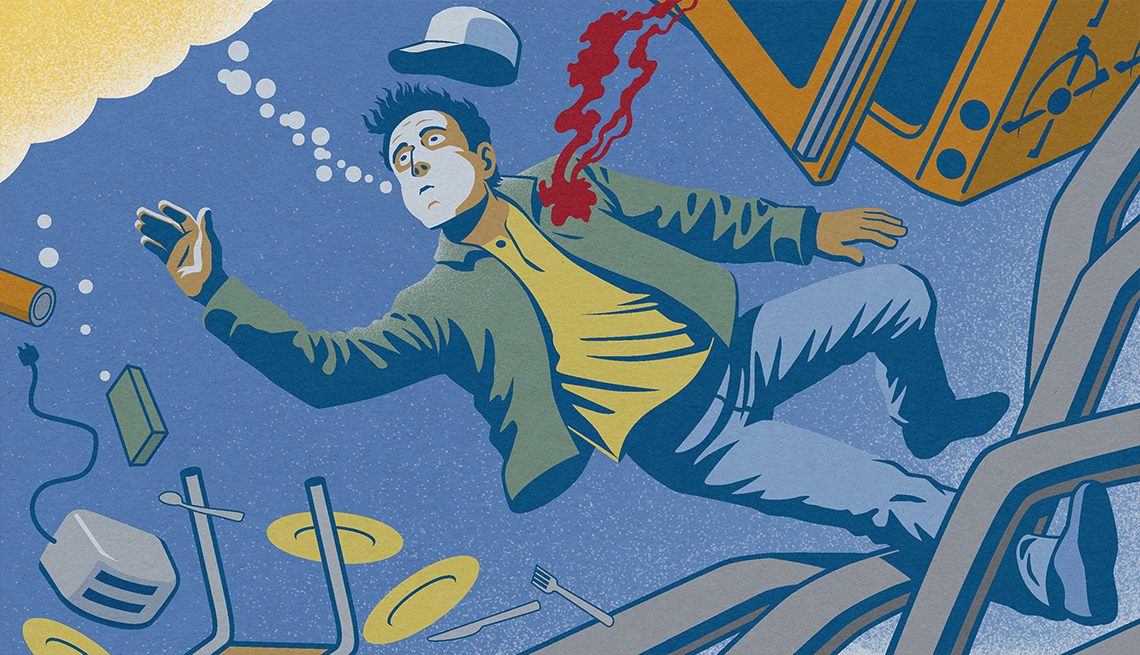
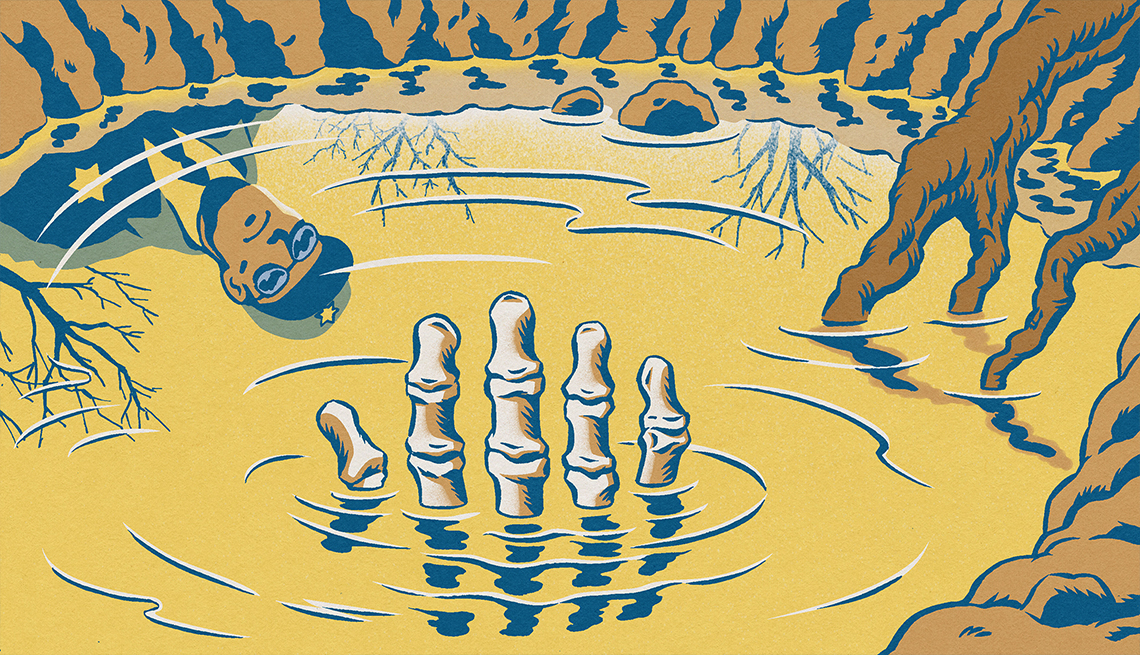

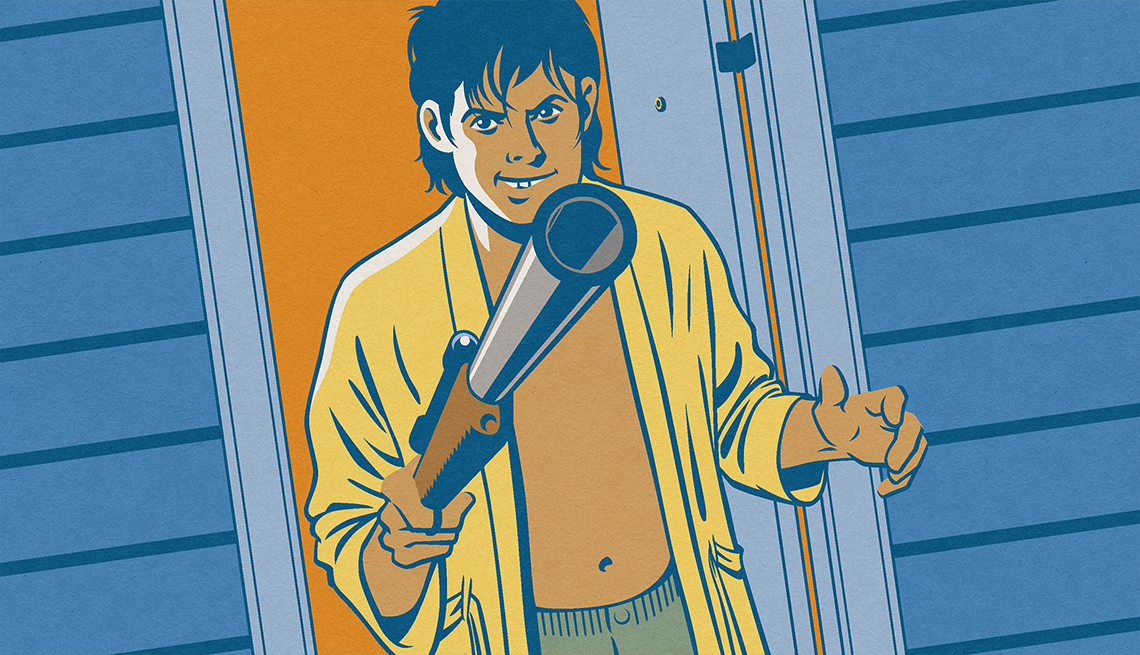
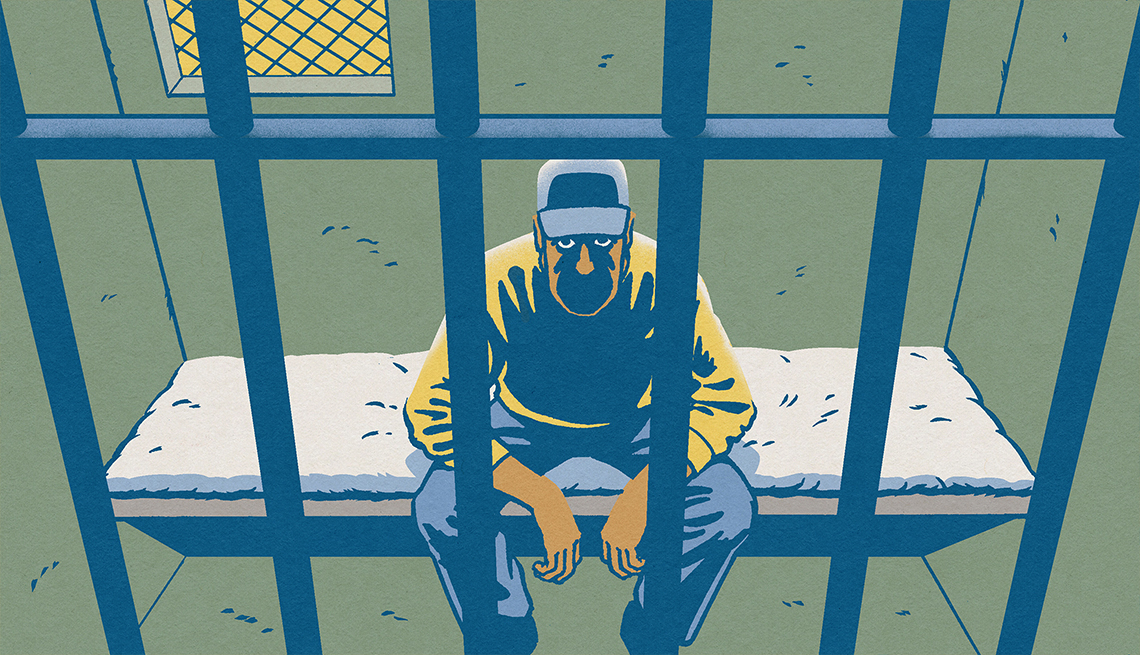
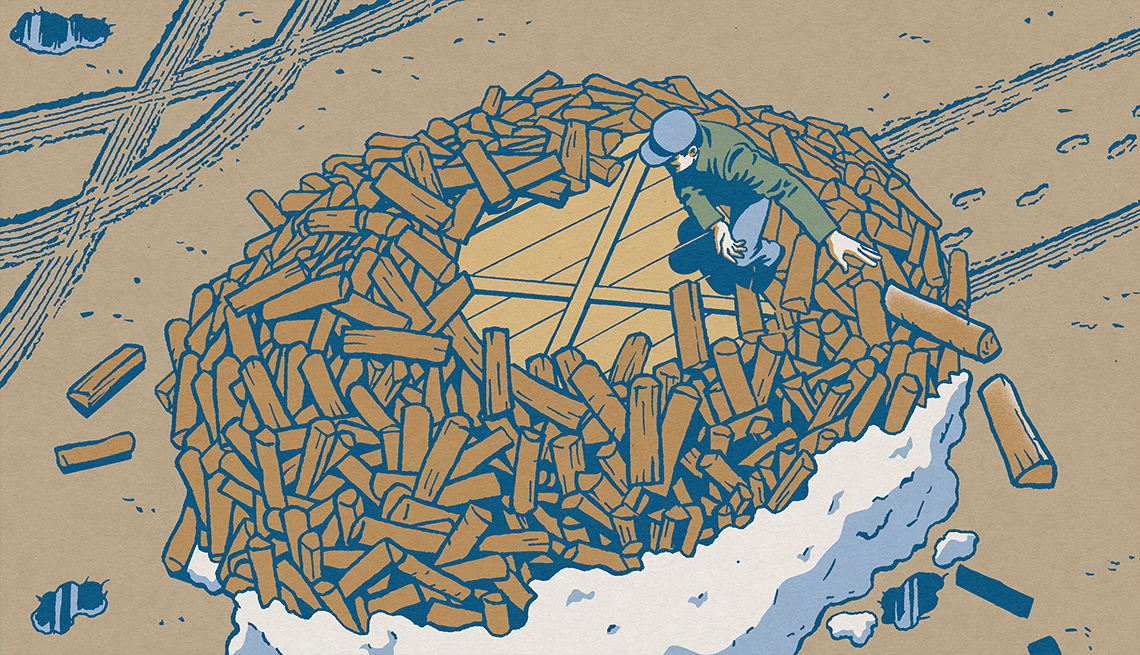
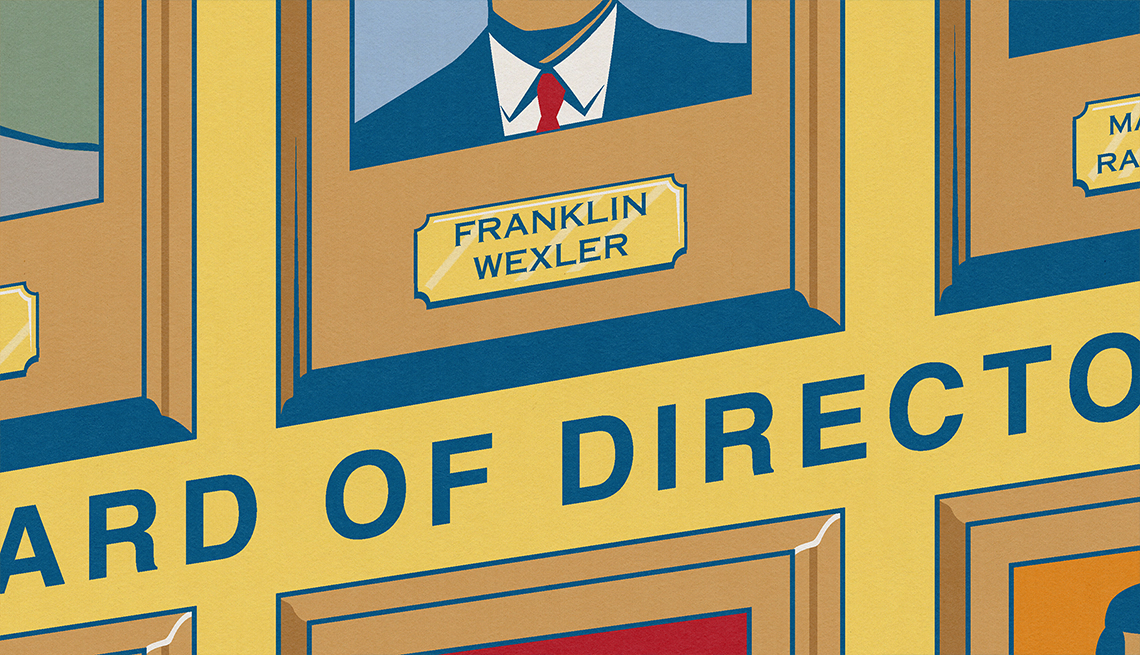
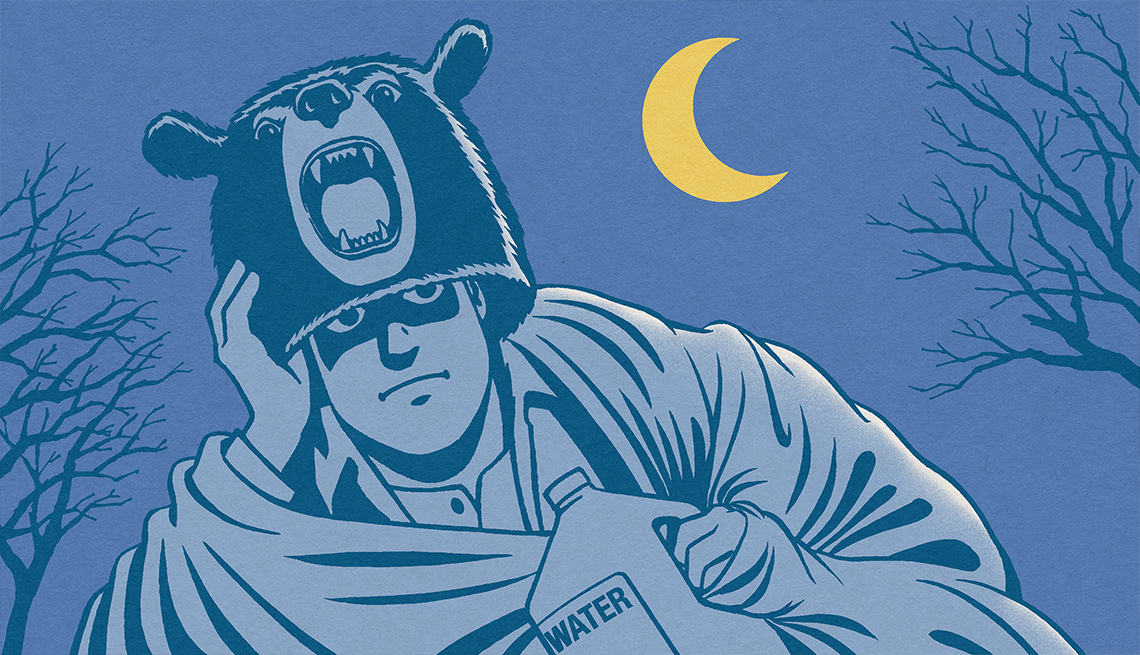
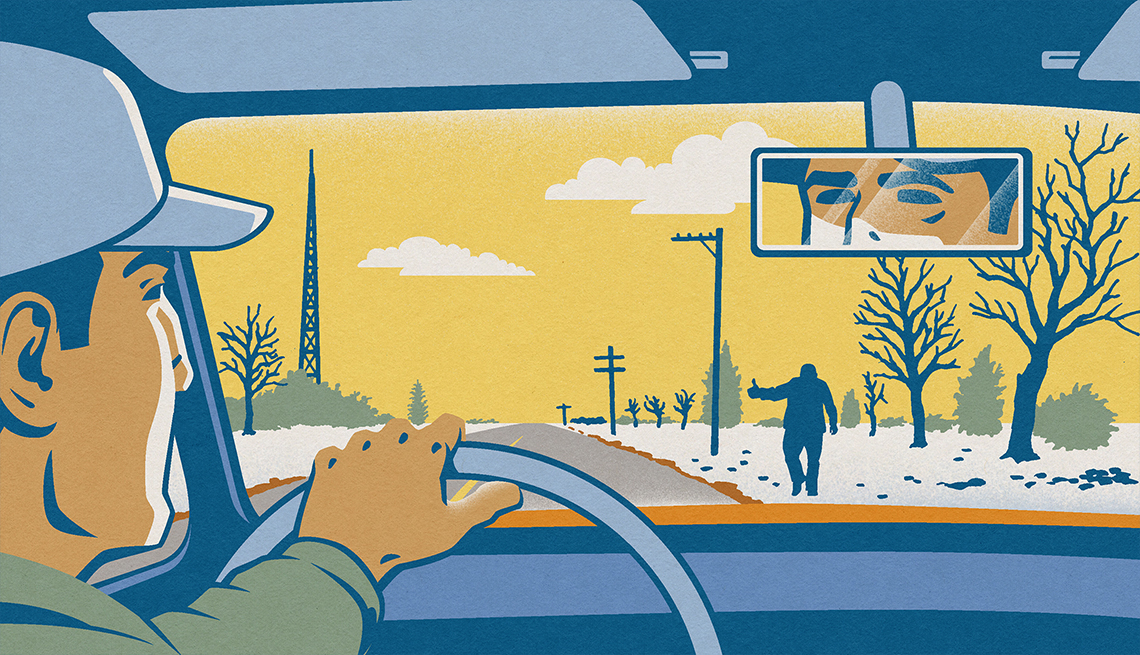
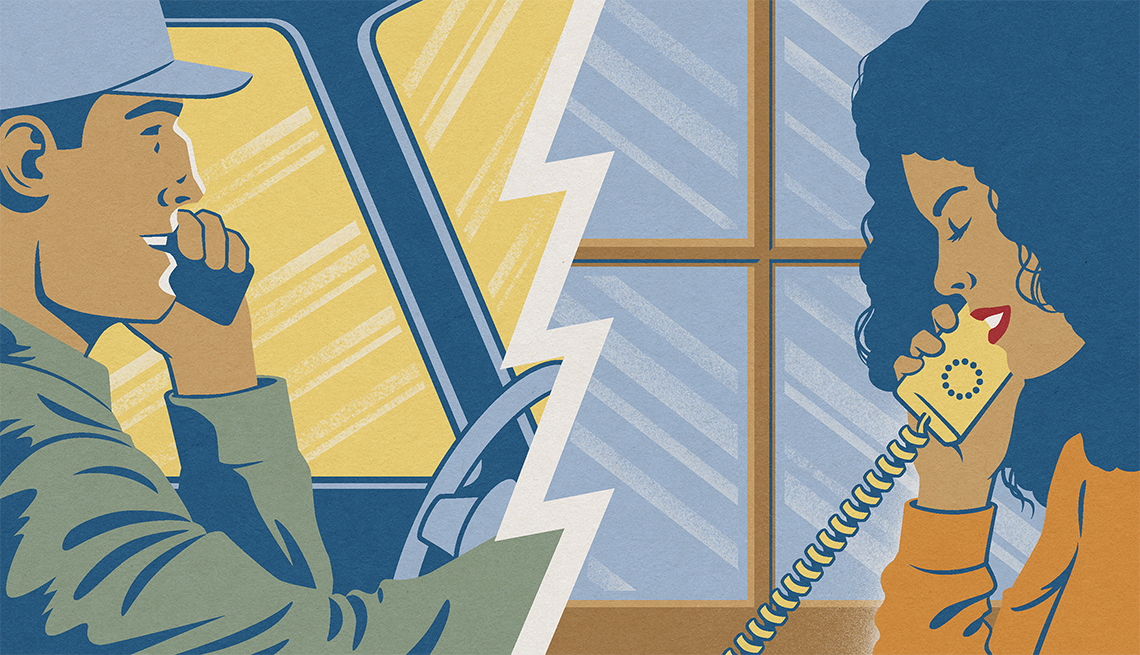
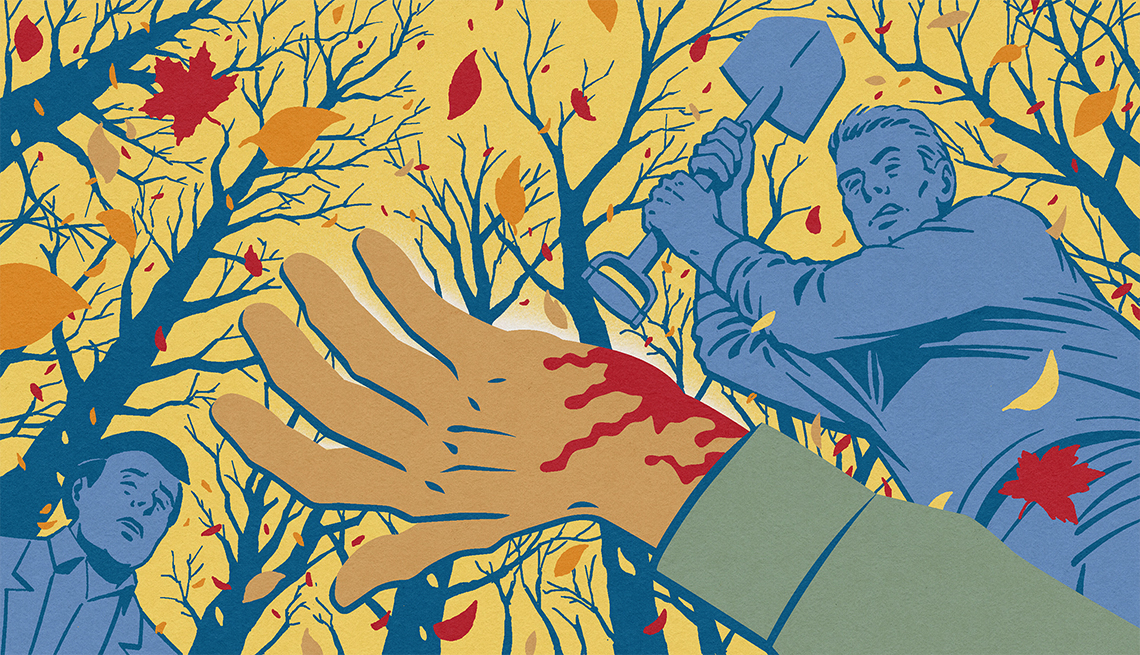
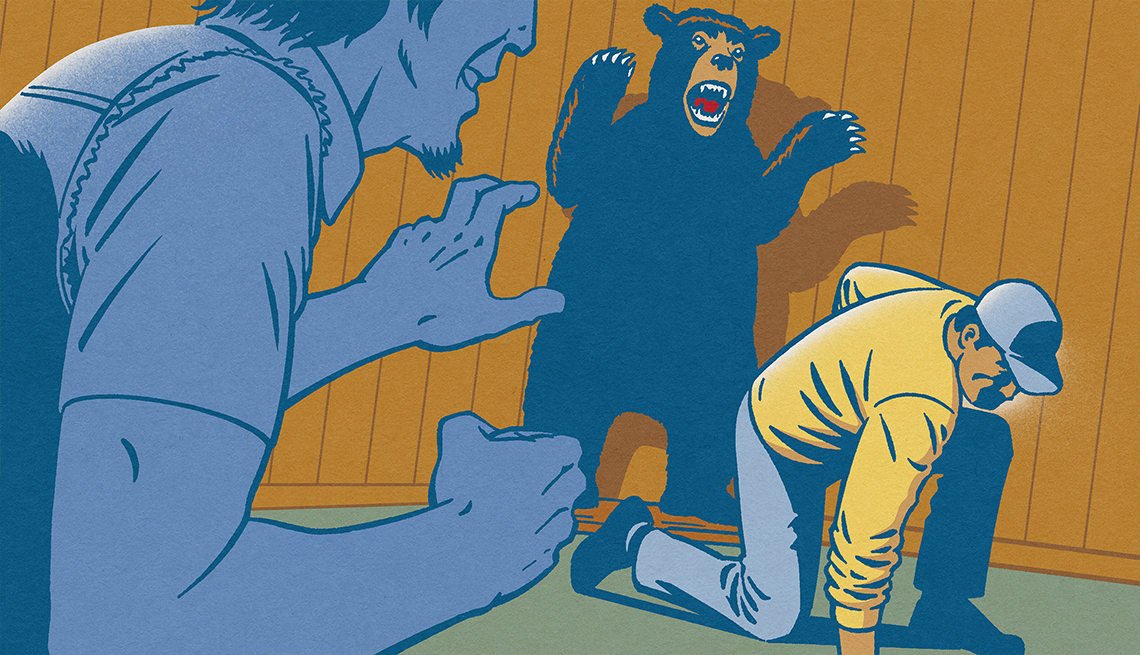

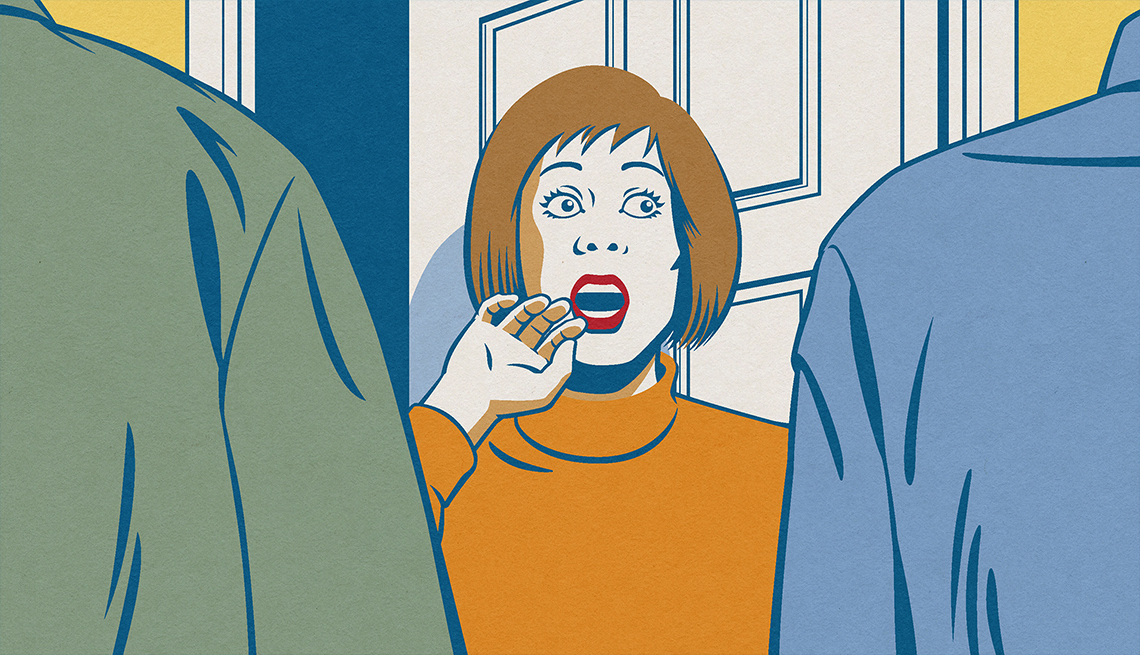
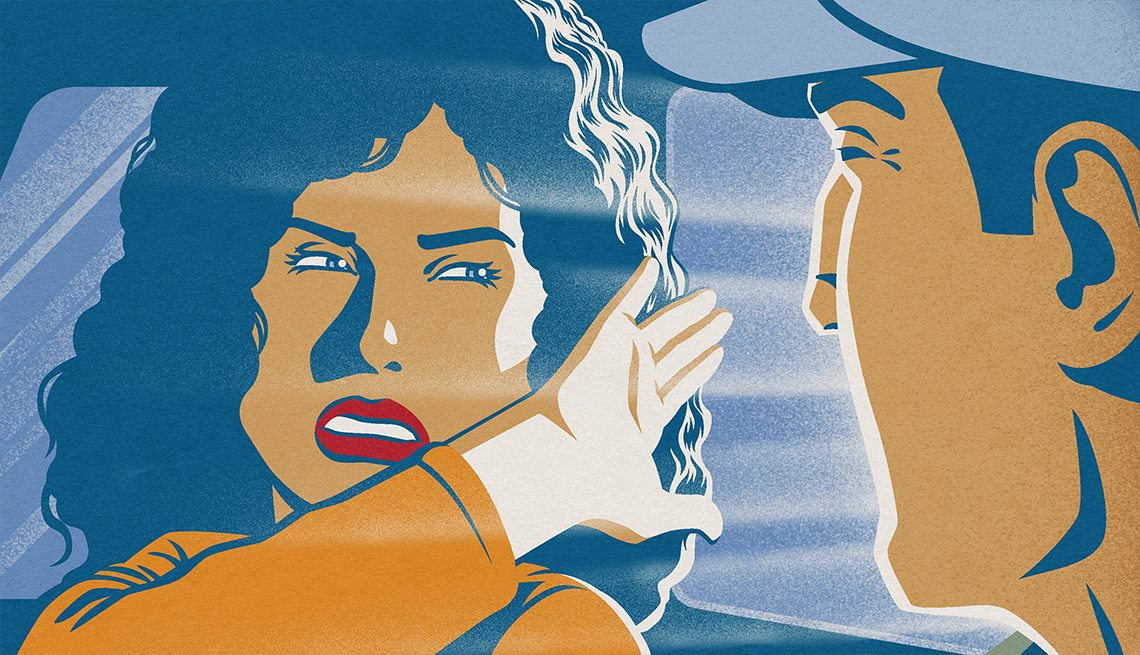
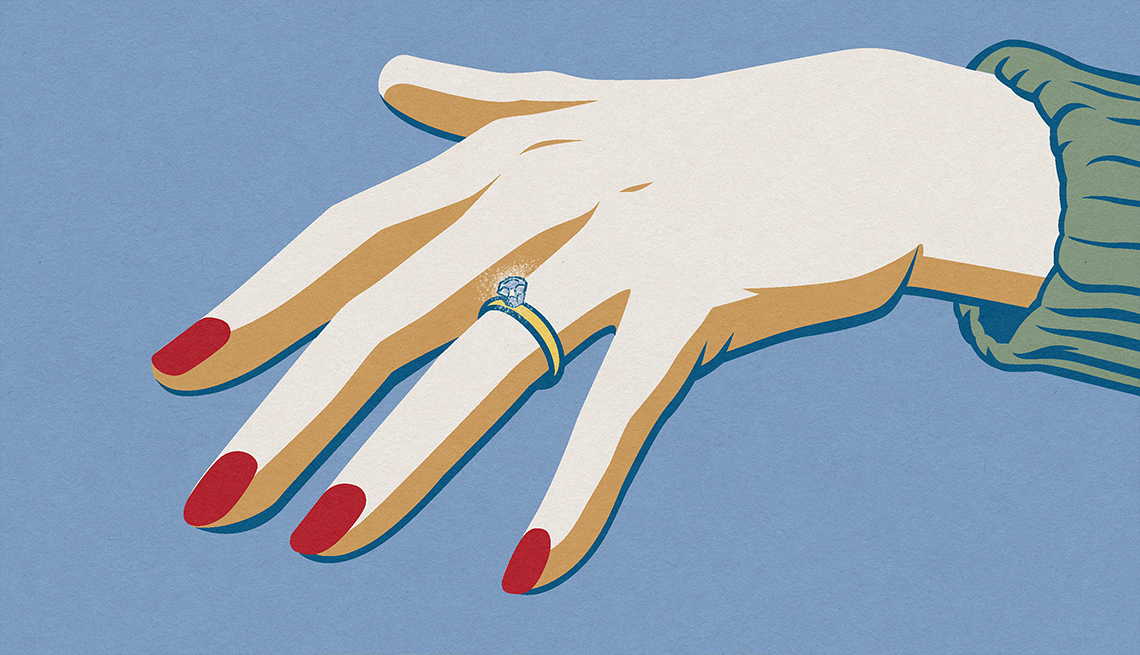



More From AARP
Free Books Online for Your Reading Pleasure
Gripping mysteries and other novels by popular authors available in their entirety for AARP members